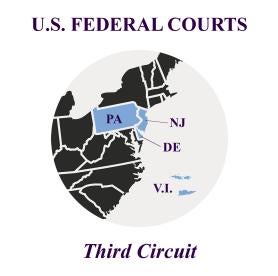A New Jersey federal court has held that potential embarrassment is not enough to permit plaintiffs to litigate anonymously in a fight over breast implants.
In an August 13, 2020 letter order, the Hon. Joseph A. Dickson, U.S.M.J., ruled that the plaintiffs alleging that defendant Allergan Inc. hid health risks associated with its textured breast implants must reveal their identifies in court filings in the MDL litigation captioned In re: Allergan BIOCELL Textured Breast Implant Prods. Liab. Litig., No. 19-MD-2121.
Allergan filed a motion to prohibit anonymous pleadings after several plaintiffs filed pleadings identifying themselves only by initials or pseudonyms (e.g., “Jane Doe”) instead of using their full names. The plaintiffs did so without first seeking leave of court. Allergan argued that the plaintiffs should be required to use their full names moving forward in the litigation. In response, plaintiffs argued they wanted to proceed anonymously to protect against disclosure of their personal medical decisions, and that they had a “reasonable fear that widespread knowledge of their medical histories w[ould] lead to unnecessary stigma and humiliation in familial, social and professional circles.” Following oral argument, the District of New Jersey granted Allergan’s motion.
To begin, the court observed that Federal Rule of Procedure 10(a) requires the caption on a complaint to bear the “name[s] of all the parties,” and that this Rule reflects the principle that judicial proceedings “are to be conducted in public.” The court noted the Third Circuit’s position, articulated in Doe v. Megless, that a plaintiff’s “use of pseudonym runs afoul of the public’s common law right of access to judicial proceedings.” For this reason, litigants are only permitted to proceed anonymously in “exceptional cases,” such as in cases involving reproductive rights, sexuality and sexual identity, and mental illness.
In order to proceed anonymously, a litigant must show “both (1) a fear of severe harm, and (2) that the fear of severe harm is reasonable,” and “fear of embarrassment or economic harm will not suffice.” The court may consider a variety of factors in this analysis, including but not limited to the extent to which the litigant’s identity has been kept confidential; the magnitude of the public interest in maintaining that confidentiality; and whether the party seeking to sue anonymously has illegitimate ulterior motives. If a litigant successfully satisfies this standard, then the court must “balance a plaintiff’s interest and fear against the public’s strong interest in the open litigation process.”
Applying this framework, the District of New Jersey held the plaintiffs failed to articulate a “fear of severe harm.” The plaintiffs’ failure to describe the alleged “stigma” and humiliation they feared was fatal to their opposition. In addition, the plaintiffs’ arguments concerning general knowledge of their general medical decisions was equally unpersuasive to the court, which held that if this served as a basis for proceeding via pseudonym, “nearly every case involving a medical procedure, device, or insurance claim, among a host of other scenarios, would seemingly qualify, and the exception would become the rule.”
The court granted Allergan’s motion and ordered the parties to meet and confer regarding the impact of the decision within 10 days.



 i
i

